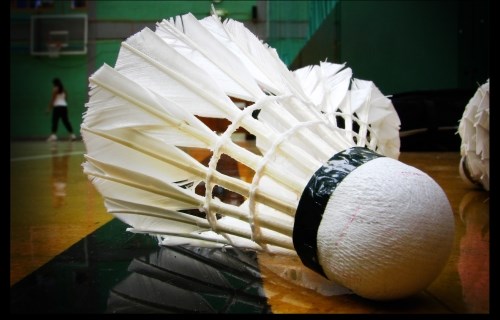Match-fixing risk at highest level in badminton exposed

Photo: Jaypeg/Flickr
While match-fixing news is often focused on football, cricket and tennis, another sport has come into the spotlight after revelations by the Danish Broadcasting Cooperation (DR) that two top tier Danish badminton players were offered to fix matches in June this year a few days before Japan Open.
A Malaysian man whose identity is known to the journalists and the players used Facebook to approach Hans-Kristian Vittinghus, ranked eighth in the world in men’s singles, and Kim Astrup, ranked 22 in men’s doubles.
Hans Kristian-Vittinghus rejected the offer right away and took contact to the Badminton World Federation (BWF) and asked them to open an investigation. Kim Astrup decided to get more information about the proposal and asked the match-fixer several questions before rejecting the offer, thereby acquiring additional documentation from the fixer (see the text box to the right).
The match-fixer offered to pay Astrup around 3,000 euro per game and could assist Kim Astrup in betting on his own games to earn even more money than the offered fee.
Kim Astrup also asked the fixer which other games he had fixed – to which the man answered he had fixed games during Thomas Cup and Singapore Open.
Finally, Kim Astrup rejected the offer and reported the full conversation to BWF (see text box).
“If Thomas Cup is fixed, we are talking about one of the biggest tournaments in our sport being manipulated. We have to deal with it, because if it can happen here, it can happen everywhere,” says Kim Astrup to DR.
Hans-Kristian Vittinghus decided to go public after several cases of match-fixing have been uncovered recent months.
“It is quite scary to be contacted this way by people who want to harm our sport. The only thing I could do was to report the would-be fixer to BWF. But from Facebook I can see that this guy got accreditation to tournaments and I can see him pose with some of the best Asians players. This scares me. By giving this interview and talking about match-fixing I hope that everyone will be aware that match-fixing is a part of our sport as well as several others,” Vittinghus says to DR.
Mixed feelings at badminton HQ
The Badminton World Federation is not unreservedly happy that the two players have chosen to publicise the attempted fix. In a press release issued 12 October, the same day as DR broke the story, the BWF expresses satisfaction that the players in the first place reported the case to the BWF ‘Whistle Blower’ System.
But since the BWF whose headquarters are placed in Malaysia has reported the matter to the local police and pledged its full cooperation, the BWF “does not think it is advantageous for the resolution of this case that details have been publicized”.
The BWF President, IOC member and former Olympic champion Poul-Erik Høyer from Denmark, recognises that this case – the worst he has known of in his badminton career – represents a big threat to the sport.
“If Thomas Cup and Singapore Open were fixed, this is very, very serious. It is of course deeply worrying if match-fixing can take place at that level, because then there is a risk that it can also happen at other levels. We may just have seen the tip of it,” Poul-Erik Høyer says to DR.
The BWF says it has no possibility to take action against the Malaysian who approached the players, since he is not part of groups under the sport’s jurisdiction. Via his professional occupation the man has regular access to the international badminton events and to the top players of the world.
DR has interviewed the hopeful match-fixer in two separate conversations. In the first talk the person admitted the contact to the two players, and in the second he refused any knowledge of them. In spite of the conversations he engaged in on Facebook, he denies any involvement in match-fixing. The case is currently under investigation by Malaysian authorities.
A particular vulnerability
Play the Game’s international director says the case is a useful reminder that match-fixing is a threat to more sports than just football:
“This case makes you think that badminton has a particular vulnerability because of the very strong position it has in Asia where the criminal gambling groups also have their stronghold and where gambling figures are unbelievable,” Jens Sejer Andersen says.
He suggests that the BWF finds a way to exclude the involved person and the private company he represents from badminton events, so he cannot continue to familiarise with players.
“In this case the Danish players fortunately chose to report it, but you cannot help thinking that there are probably hundreds of underpaid or ill-treated players in the Asian elite or sub-elite who might yield to the temptation.”





